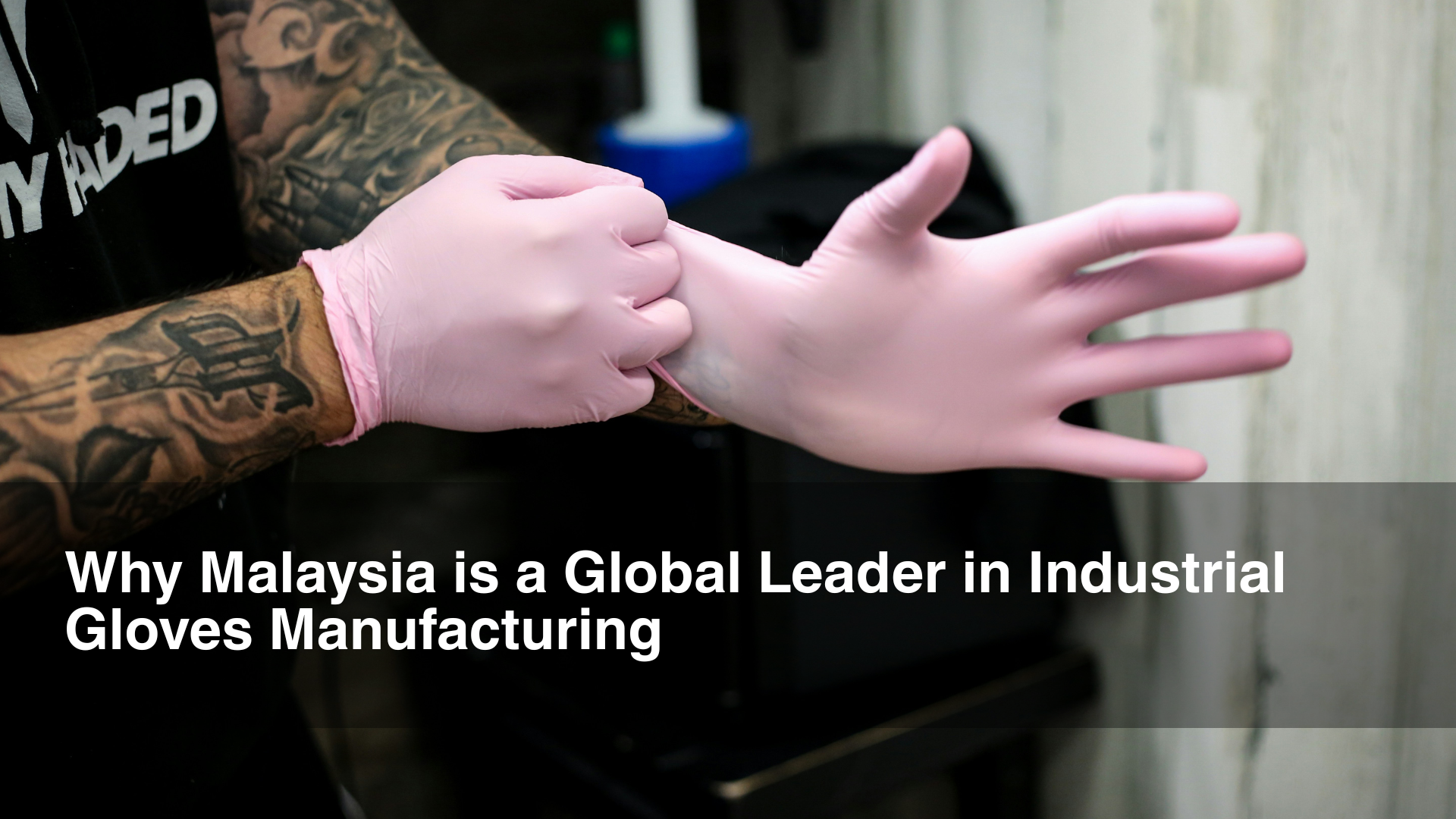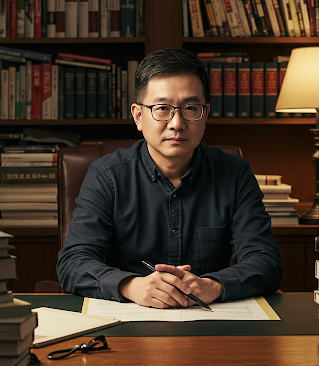Introduction to the Industry of Industrial Gloves Manufacturer Malaysia
Malaysia has established itself as a prominent player in the global industrial gloves manufacturing sector, boasting a rich history that dates back several decades. The journey of industrial glove production in Malaysia began in the late 1970s, when the country started to capitalize on its natural rubber resources. These resources provided a strong foundation for the development of high-quality gloves, leading to a burgeoning industry that would eventually place Malaysia on the map as a key supplier worldwide.
The Malaysian industrial gloves industry has witnessed remarkable growth and transformation over the years. Initially focused on domestic consumption, the industry quickly adapted to the international market demands. By the 1990s, various manufacturers were investing heavily in technology and infrastructure, enabling them to produce a diverse range of gloves suitable for various applications, including medical, manufacturing, and construction. Today, Malaysia is recognized as the largest exporter of rubber gloves globally, primarily due to its innovative production techniques and continuous commitment to quality.
Several factors have contributed to the ascendancy of Malaysia’s industrial gloves manufacturing, including favorable government policies, a strong pool of skilled labor, and strategic investments in research and development. The Malaysian government has consistently supported the industry by facilitating access to markets and providing incentives for growth. Additionally, the presence of well-established manufacturers has fostered a competitive environment that encourages continuous improvement and innovation.
Moreover, the increasing global demand for personal protective equipment (PPE), particularly in light of heightened health and safety awareness, has further boosted Malaysia’s industrial gloves sector. As more countries seek reliable suppliers in the face of changing regulations and market dynamics, the role of Malaysian manufacturers as reliable partners has become more pronounced. With their commitment to quality and adherence to international standards, Malaysian industrial gloves manufacturer Malaysia are well-positioned to meet the challenges of the future.
The Role of Innovation Among Industrial Gloves Manufacturer Malaysia
Innovation is a critical driver of success in the industrial gloves manufacturing sector, particularly in Malaysia. As a prominent industrial gloves manufacturer Malaysia, the nation’s companies have continuously embraced advancements in manufacturing processes and technologies. This commitment to innovation allows them to maintain a competitive edge in the global market, responding to the evolving demands of consumers and industries alike.
One area where innovation has flourished is in the development of new materials. For instance, manufacturers have been experimenting with advanced synthetic compounds that offer superior durability and protection while remaining lightweight and flexible. These new materials not only enhance the comfort levels for end-users but also contribute to significant reductions in manufacturing waste, aligning with sustainability goals.
In addition to materials, automation and digital technologies have transformed the production landscape. Industrial gloves manufacturer Malaysia are increasingly utilizing robotics and artificial intelligence to streamline operations. These technologies enable companies to achieve higher efficiency, minimize human error, and adapt quickly to changes in production demand. For example, automated systems can rapidly shift between different product types, allowing manufacturers to offer a diverse range of gloves without significant downtime.
Moreover, Malaysian firms are investing in research and development to create innovative designs that address specific industry needs. Customization options for industrial gloves have expanded, allowing for tailored solutions that enhance safety and functionality. This dedication to design innovation not only fulfills regulatory requirements but also meets the unique needs of sectors like healthcare, automotive, and construction.
Overall, the role of innovation in manufacturing is fundamental to the success of industrial gloves manufacturer Malaysia. By continuously integrating advanced materials, automation, and customized designs into production processes, these companies exemplify how a focus on innovation can lead to high-quality products and sustainable practices, solidifying Malaysia’s position as a global leader in the industry.
Skilled Labor Force: The Backbone of Industrial Gloves Manufacturer Malaysia
The success of Malaysia as a leading industrial gloves manufacturer Malaysia is significantly attributed to its skilled labor force. Notably, the country’s commitment to education and vocational training has fostered a workforce that is adept in the nuances of manufacturing processes specific to the glove industry. This sector, known for its precision and quality demands, benefits greatly from workers who are well-equipped with both theoretical knowledge and practical skills.
Malaysia has implemented various educational initiatives aimed at enhancing the skill sets of its labor force. Vocational training centers and skill development programs are established to prepare individuals for careers in industrial manufacturing. These programs address the unique requirements of glove production, including quality control, safety measures, and equipment handling. Moreover, collaborations between educational institutions and industrial employers ensure that the curriculum aligns with real-world needs, thereby equipping students with relevant competencies before they enter the workforce.
In addition to formal education, the industrial gloves sector in Malaysia also emphasizes continuous learning. Training sessions and workshops are frequently organized to keep workers updated on the latest technologies and manufacturing techniques. Such ongoing education promotes adaptability and innovation, which are critical for maintaining high production standards and responding to evolving market demands. The result is a labor market that not only meets the industry’s requirements but also contributes to improved productivity and quality outcomes.
This skilled labor force is fundamental to Malaysia’s position as a global leader in industrial gloves manufacturing. Their dedication to quality craftsmanship supports the country’s reputation for producing gloves that adhere to international standards. Consequently, the synergy between skilled workers and advanced manufacturing processes continues to propel Malaysia’s industrial gloves industry forward, affirming its standing on the world stage.
Industrial Gloves Manufacturer Malaysia: Cost-Effective Production Strategies
The industrial gloves manufacturer Malaysia has gained a significant foothold in the global market due to its effective and economical production strategies. One key aspect that contributes to their competitiveness is the local sourcing of raw materials. By procuring materials domestically, manufacturers not only reduce transportation costs but also minimize lead times, enabling quicker production cycles. This local supply chain fosters a sustainable ecosystem that further strengthens the industry.
Another cornerstone of cost-effective manufacturing is efficient supply chain management. Malaysian glove manufacturers have invested in refining their supply chain logistics, which facilitates the seamless flow of materials, products, and information. This optimization leads to reduced waste, lower inventory costs, and the ability to respond promptly to market demands. The combination of robust logistics and local partnerships enables these manufacturers to maintain lower operational costs, which is a critical factor in remaining competitive in the global market.
Furthermore, the Malaysian government plays a pivotal role in supporting the industrial gloves sector through various incentives aimed at enhancing manufacturing activities. Programs that offer tax breaks, grants, and subsidies are designed to empower manufacturers, allowing them to invest in high-efficiency machinery and innovative technologies. These initiatives promote research and development, enabling the industry to adapt to changing market needs and enhance product quality without significantly increasing costs.
By implementing these cost-effective strategies, industrial gloves manufacturer in Malaysia have positioned themselves as leaders in the market. This approach allows them to maintain high-quality production at competitive prices, which is crucial for attracting international clients and sustaining long-term growth.
Government Support and Regulations Impacting Industrial Gloves Manufacturer Malaysia
The industrial gloves manufacturing sector in Malaysia is significantly bolstered by comprehensive government support and well-structured regulations. The Malaysian government recognizes the importance of this industry not only for its contribution to the economy but also for enhancing national competitiveness in the global market. To that end, various policies and initiatives have been implemented to encourage growth and innovation among manufacturers.
One of the primary mechanisms through which the government aids industrial gloves manufacturer Malaysia is through fiscal incentives. These incentives, which include tax exemptions and investment grants, are designed to lower operational costs and enhance profitability for manufacturers. Such financial support has proven essential for many industrial gloves manufacturer Malaysia, enabling them to reinvest in their production capabilities and explore new markets.
Moreover, the Malaysian government actively engages in establishing trade agreements that facilitate smoother export processes for industrial gloves. By signing free trade agreements with various countries, Malaysia can enhance its competitive edge, making it easier for manufacturers to access international markets. This strategic approach helps foster relationships that further expand the global footprint of Malaysian industrial gloves.
In addition to financial and trade support, the government has also set in place stringent regulations to ensure quality and sustainability within the industrial gloves manufacturing industry. The implementation of these regulations helps maintain high safety standards, thereby ensuring that Malaysian manufacturing remains globally competitive. The collaboration between manufacturers and regulatory bodies leads to the development of best practices that benefit all stakeholders involved.
In conclusion, the Malaysian government plays a pivotal role in supporting the industrial gloves manufacturing sector through fiscal incentives, trade agreements, and stringent regulations. This multi-faceted approach not only fosters a conducive environment for local manufacturers but also positions Malaysia as a leader in the global market for industrial gloves. As such, the future of this industry looks promising, with ongoing government initiatives likely to enhance growth and innovation further.
Global Market Reach and Export Success for Industrial Gloves Manufacturer Malaysia
Malaysia’s position as a leading industrial gloves manufacturer Malaysia has been significantly shaped by its ability to penetrate global markets effectively. The export success of Malaysian manufacturers is attributed to various strategic initiatives that have been employed over the years. Notably, the country has established itself as a pivotal supplier of industrial gloves, catering to a diverse range of industries, including healthcare, manufacturing, and food processing.
The industrial gloves landscape is competitive, yet Malaysia uniquely capitalizes on its geographic advantages and established logistics networks, which facilitate efficient distribution channels. Enhancing the export potential of Malaysian manufacturers involves understanding market demands, tailoring products to meet specific needs, and ensuring compliance with international quality standards. The country has developed a reputation for producing high-quality gloves that are both cost-effective and reliable, further appealing to international buyers.
Key markets such as the United States, Europe, and emerging economies have demonstrated a robust demand for industrial gloves, prompting Malaysian manufacturers to focus their export strategies on these regions. By prioritizing market research and consumer preferences, industrial gloves manufacturer Malaysia such as Glove Resources have successfully aligned their offerings with global demands, ensuring their products remain competitive. Moreover, participation in international trade fairs and exhibitions has allowed Malaysian companies to showcase their innovations and establish connections with potential buyers across the globe.
Additionally, digital marketing and e-commerce platforms have increasingly played a role in Malaysia’s export strategy, with manufacturers actively utilizing online channels to reach a broader customer base. By leveraging technology, industrial gloves manufacturer Malaysia can enhance visibility, streamline operations, and engage directly with clients worldwide, thereby reinforcing their status as a preferred source of industrial gloves. Ultimately, Malaysia’s export success is underscored by its strategic approach to overcoming challenges and seizing opportunities within the global market.
Sustainability Practices in Industrial Gloves Manufacturer Malaysia
Malaysia’s industrial gloves manufacturers have made significant strides in adopting sustainability practices that meet the evolving demands of the global market. As the prevalence of environmentally conscious consumers rises, manufacturers are increasingly recognizing the importance of incorporating eco-friendly production methods. Various Malaysian glove manufacturers have embraced innovative techniques, focusing on reducing environmental footprints while maintaining quality and profitability.
One notable approach is the implementation of eco-friendly raw materials. Manufacturers are increasingly sourcing sustainable latex alternatives and recycled materials that minimize resource depletion. This shift not only addresses environmental concerns but also positions Malaysian products as preferable choices for conscious consumers and businesses. Additionally, many industrial gloves manufacturers in Malaysia have invested in advanced technology to create energy-efficient production processes that reduce the consumption of water and electricity, contributing to overall environmental preservation.
Waste management remains a critical aspect of sustainability initiatives. Many glove manufacturers have adopted comprehensive waste reduction and recycling programs. For instance, they have implemented measures to recycle production scraps and unused materials, significantly reducing landfill contributions. This proactive approach not only helps preserve the environment but also enhances operational efficiency and bottom-line profits. Furthermore, engaging with employees and stakeholders plays a vital role in fostering a culture of sustainability, as continuous training programs are instilled to promote awareness and practices that emphasize environmental stewardship.
In an increasingly competitive landscape, the commitment to sustainability practices sets Malaysian industrial gloves manufacturers apart. Not only do these initiatives help meet regulatory requirements and consumer preferences, but they also enhance brand reputation and long-term viability in the market. By integrating sustainability into their core operational strategies, Malaysian manufacturers are paving the way for a flourishing future that aligns economic growth with environmental responsibility.
Challenges Faced by Industrial Gloves Manufacturer Malaysia
The industrial gloves manufacturing industry in Malaysia is subject to a multitude of challenges that can affect its operational efficiency and competitive stance. One major challenge is the intense competition from both domestic and international manufacturers. Countries such as Vietnam and Thailand have also developed their production capacities, offering lower labor costs and attracting significant investment. As a result, Malaysian industrial gloves manufacturers must continuously innovate and enhance their product quality to retain their market share in a highly contested landscape.
Another pressing issue facing this sector is the rising costs associated with raw materials, labor, and production processes. Fluctuations in the prices of rubber and synthetic materials used to manufacture gloves can significantly impact profit margins. Furthermore, labor costs are rising due to the ever-increasing demand for skilled workers. Industrial gloves manufacturer Malaysia are thus compelled to implement cost-saving measures, such as adopting advanced technologies and optimizing supply chains, to mitigate these rising expenses.
In addition to competition and rising costs, changing regulations pose another layer of difficulty for manufacturers. Health and safety regulations are continuously evolving, necessitating compliance with stricter standards for product quality and workplace safety. This aspect requires manufacturers to invest in training and development, as well as in enhancing their production facilities to meet the latest regulatory requirements. Failure to comply can result in penalties and loss of market access, further complicating the industry’s operational landscape.
To surmount these challenges, Malaysian industrial gloves manufacturers are increasingly relying on innovation and technology adoption. Implementing automation and smart manufacturing solutions can enhance productivity and reduce labor dependency, thereby helping to alleviate rising costs. Additionally, focusing on sustainable practices—such as reducing waste and improving recycling processes—could provide a competitive advantage in the eco-conscious market. By proactively addressing these challenges, the industry strives to maintain its status as a global leader.
Future Outlook for Industrial Gloves Manufacturer Malaysia
The future of Malaysia’s industrial gloves manufacturing sector appears positive, buoyed by emerging trends that promise to reshape the landscape. As one of the prominent industrial gloves manufacturers in Malaysia, companies are increasingly adopting advanced technologies to enhance productivity and streamline production processes. Innovations in automation and robotics are expected to play a crucial role in improving efficiency, reducing operational costs, and ensuring high-quality output. This technological integration not only boosts production capacity but also caters to a growing demand for precision in glove manufacturing.
Market expansion represents another significant opportunity for the sector. With the global demand for industrial gloves continuing to rise, especially in healthcare, food processing, and heavy industries, Malaysian manufacturers are well-positioned to capitalize on this growth. The increasing awareness of safety standards and the necessity for protective equipment in various industries have catalyzed investments in the local manufacturing sector. These investments not only enhance the production capabilities but also boost the country’s competitiveness on the international stage.
Potential areas for innovation also present exciting prospects. Researchers and manufacturers are exploring new materials and coatings that provide enhanced protection while maintaining comfort and dexterity. The shift towards sustainable practices, including the production of biodegradable gloves, is gaining momentum as environmental considerations become increasingly important to consumers and industries alike. This evolution is indicative of a larger trend towards eco-friendly solutions in manufacturing, offering Malaysian manufacturers a chance to lead in sustainable practices within the industrial gloves market.
In conclusion, the industrial gloves manufacturing sector in Malaysia is on the brink of significant transformation, driven by technological advancements, increased market demand, and innovative approaches to production. As these trends unfold, Malaysia is poised to remain a pivotal player in the global industrial gloves market, leading the way towards a more efficient and sustainable future.











